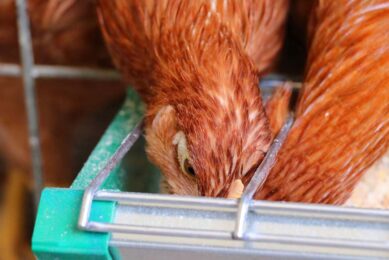Tackling red mite in poultry houses
Effective control of red mite can only be achieved by breaking the cycle of re-infection, according to a poultry industry specialist.
Red mite are one of the most difficult — and costly — pests for the poultry farmer to control. It is estimated that red mite infestations cost the EU egg industry €0.43 per hen — equivalent to €130 million each year.
“The hunt for the next successful pesticide is a never-ending treadmill for the agrochemical companies. Unfortunately, there is a relatively short time between the launch of a new ‘ground-breaking’ product and the development of resistance,” says Jim Bigmore, managing director of Hysolv Ltd.
When a pesticide is used in a layer house, not all the red mite may be killed. Any surviving mites will then lay eggs which grow into adult mites having the same resistance qualities as their parents. The process continues until, eventually, the majority of the red mite colony is resistant to the particular product being used.
This doesn’t mean that the layer industry is powerless to delay the build-up of resistance. The cycle can be broken by using an effective anti-mite disinfectant during the end-of-cycle clean-out. It is important to use a disinfectant which is effective against mite eggs as well as the remaining mites, he points out.
“This means that even though the next crop of birds will still be exposed to non-resistant mites coming into the house from outside, the colony of resistant mites within the house will be removed at the end of every cycle.
“This is important to the farmer since new pesticides are seldom cheaper and so prolonging the activity of existing products can add directly to the farm’s bottom line.
Pesticides work by inhibiting the functions of the insect’s cells and this can sometimes be overcome, leading to the build-up of resistance points out Bigmore.
Source: Hysolv
Join 31,000+ subscribers
Subscribe to our newsletter to stay updated about all the need-to-know content in the poultry sector, three times a week. Beheer
Beheer








 WP Admin
WP Admin  Bewerk bericht
Bewerk bericht